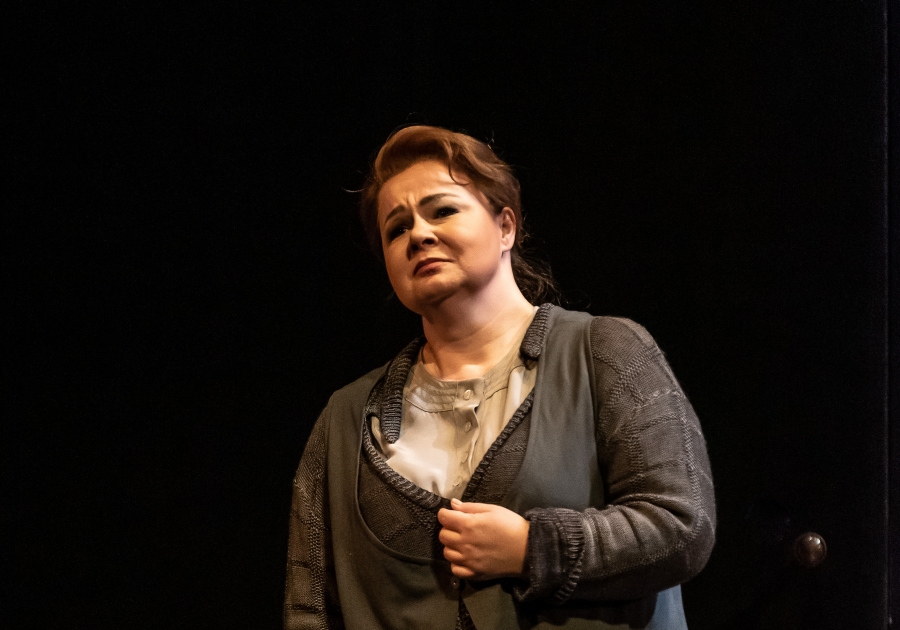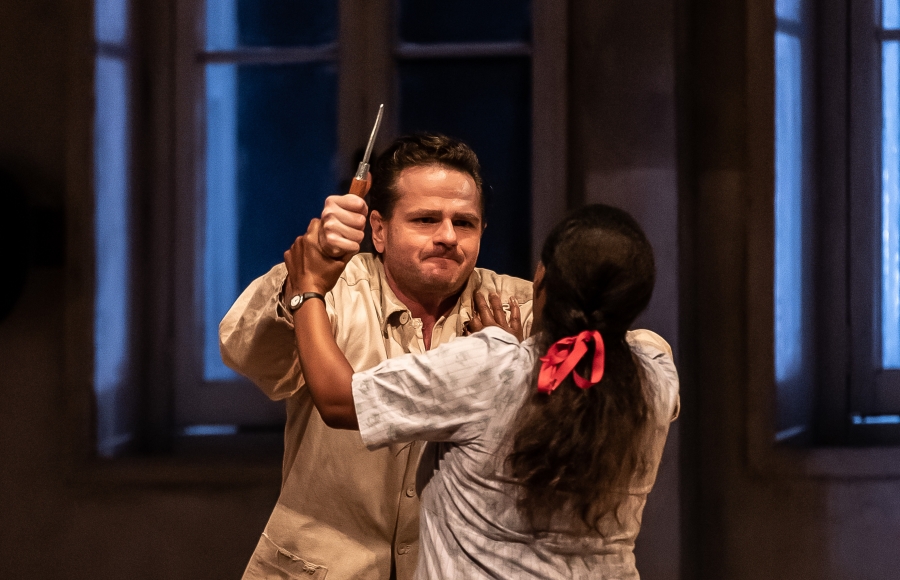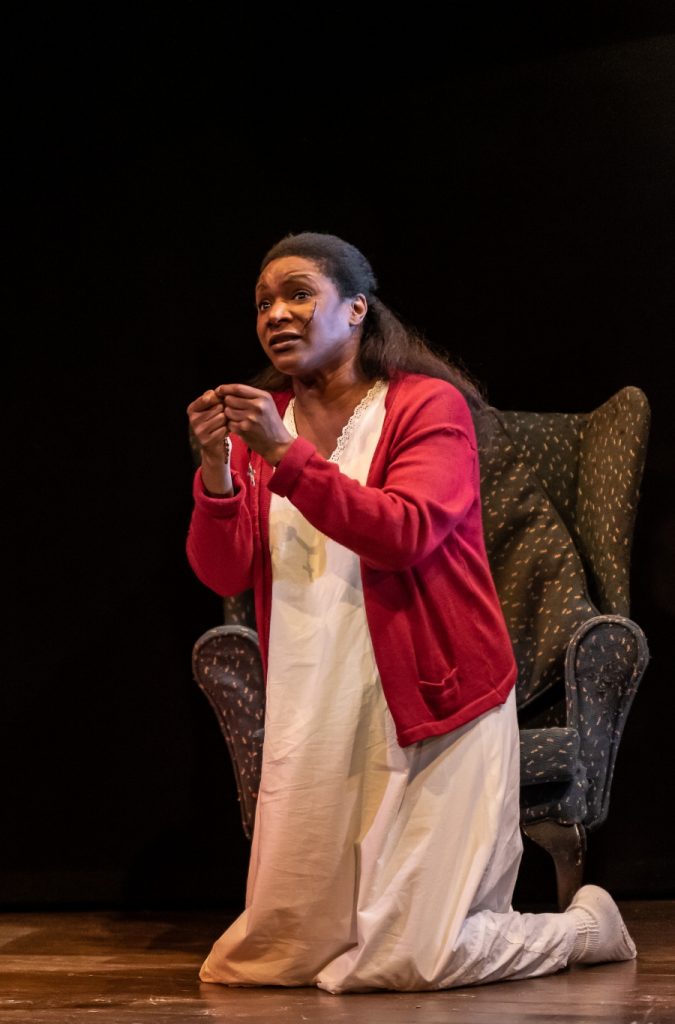The WNO continues in its exploration of the works of Czech composer Leoš Janáček, this time going back to the early stages of his career to offer a new production of this 1904 work, known originally under the title of Její pastorkyňa (Her Stepdaughter) before being most commonly titled after the name of its protagonist. Jenůfa is also one of the earliest operas written in prose rather than verse, one of the contributing factors to its remarkably modern sound; here, sung in the original Czech, the WNO production offers a precious occasion for opera lovers to rediscover this work in a philological presentation which highlights how relevant and relatable its story and themes still are, even for an audience by now fully detached from the type of rural backdrop it represents.
We are often used to thinking of opera as a realm of larger-than-life characters and over-the-top plotlines, and so it is at first almost disconcerting to be brought into a much smaller, more human perspective here. Jenůfa could almost be described as a kitchen-sink drama: a story of humble people, humble itself even in the intense emotions it evokes, of the kind we might all have heard told by a grandparent or great-grandparent: the story of a young woman who becomes pregnant out of wedlock and of a stepmother who makes a terrible choice in an attempt to save her reputation and future perspectives. This is reflected in the stage design, which is in turn almost minimalist with its humble interiors and neutral colours, a series of room which any of our grandparents might have frequented at some point, emphasising the relatability of the story as it unfolds. All around them is the environment of a Moravian village in the 19th century, painted by Janáček with the vivid brushes offered to him by his research on folk music. Folk influences abound in the fabric of this opera’s sound, not only in the choral sections, where snippets of folk songs are directly inserted almost as a counterpoint to some of the pivotal moments of the plot, but more subtly elsewhere, a red thread running through the voice of the whole work. This attention to folk sensitivities also resonates in the many sections referencing the religiosity of the people of the village; perhaps most touching, Jenůfa’s prayer to the Virgin Mary, a moment of particular lyrical beauty.
Eliška Weissová
Peter Berger and Elizabeth Llewellyn
Elizabeth Llewellyn
It is a story that inevitably centres women, in their most intimate hopes and moments of suffering, but also in their moments of strength and in their attempts to confront a society that is rigged against them (it is not by chance that Jenůfa is shown, in one of the earliest scenes in the opera, teaching other young women to read and write; the empowerment she is denied is perhaps her true tragedy, even on the backdrop of the events she is confronted with). Thus it is not surprising that the characters lingering in one’s mind at the end of the performance are the female ones: Jenůfa herself, of course, portrayed with profound sensitivity and a limpid, heartfelt vocal delivery by Elizabeth Llewellyn, admirably confronting the far-from simple task of serving as the backbone of the whole narration; and perhaps even moreso her stepmother Kostelnička, a tragic figure of almost titanic standing, delivered powerfully by Eliška Weissová, whose deeply understanding take on the character channel both her stern outer surface and her deeper torment. Sidelined to an extent by the writing itself, the male characters are almost functions of the story of those two central female figures; Peter Berger does an excellent job in conveying the ambiguity of Laca, Jenůfa’s suitor – first scorned and violent, then sympathetic, and altogether a morally grey figure; while Rhodri Prys Jones lends a smooth vocal perfomance and a charismatic stage presence to Jenůfa’s beloved and father of her illegitimate son, the miller Ŝteva.
Tragic as it is, the story ends on a note of hope for the future, for its character as they strive to leave their suffering behind and to build something new, and for their society also, perhaps, as it faces the nature and implications of what has happened. Before the start of the performance, conductor Tomáš Hanus offered the audience a touching reminder of the power of the beauty contained in art to bring light in dark times, pointing out that artistic expression is, after all, all about humanity. The remark could not have been more apt for any other work, because this is, first and foremost, an exploration of what it is to be human; in this sense, Janáček’s work fully demonstrated its ability to speak to a modern audience and touch chords which still resonate deeply in a modern environment.
Rhodri Prys Jones and Elizabeth Llewellyn
Images: Cliva Barda
Wales Millennium Centre until March 18 and touring until May 10


